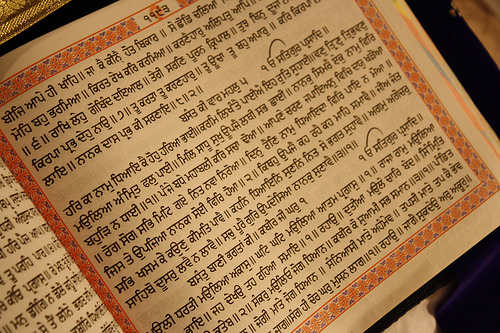Basant Ki Var, by Guru Arjan Dev, is the shortest of the twentytwo vars (holy poems composed in the style or tone of odes). Vars are heroic ballads included in the Guru Granth Sahib. Basant, is the Punjabi word for spring from which the musical measure the Var derives its title. Like Malhar (the raga of the rainy season) the The Basant Ki Var is an ancient seasonal raga - the raga of springtime.

The Basant ki Var is made up of three pauris (stanzas) only and each pauri consists of only five lines. Like the Var of Balvand and Satta, but unlike any other var in the Guru Granth Sahib, this Var does not have any slokas added to the pauris. The Var addresses itself to the theme of the Guru`s grace which alone will enable man to overcome his ego or selfhood and, thus, attain, communion with the Creator. Springtime is the period of newness when vegetation stirs to life and nature comes to bloom in all its beauty and splendour.
As the Guru`s grace occurs, man sheds the winterborn leaves of ego, lust, greed, attachment and anger and blossoms into nam, joy in the constant remembrance of God. As Basant is the season of union, this Var impresses upon man to submit himself to the true Guru to achieve union with the Divine. Men who meditate on the Name and surrender themselves to the will of the Lord are Gurmukhs (gur=guru, mukh=face), holy or Guru oriented men. They alone overcome the five vices, which are the companions of manmukhs, the selfwilled.
Such men succumb not to grief, nor are they beguiled by pleasures. They are freed from the cycle of birth and death. Transmigration thus annulled, the self merges in the Creator.